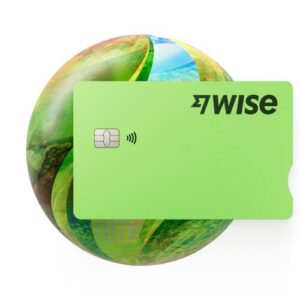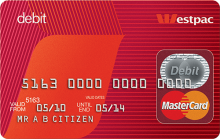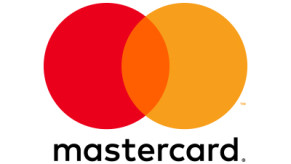THB card in New Zealand: What are the options? 2025
Heading on a holiday to Thailand? Getting a dedicated THB card which lets you hold and exchange Thai baht, or a cheap travel money card you can use to spend in THB securely can be a smart move. Alternatively, you might choose to use a regular debit card from a major bank, if you have one with low or no foreign transaction fees and no ATM charges. Each option has its own benefits - but picking the right one for you can mean flexible spending and lower overall fees when you pay in THB.
This guide covers THB card options, how to order a specialist THB card, why it can help, and what fees and exchange rates you can expect. Plus we’ll take a look at how THB cards from specialist non-bank providers like Wise, and travel money cards from banks like Westpac can help you with easy and secure THB spending.
What is a THB card?
A THB card is a card you can use to spend and make withdrawals in THB in person and online. An ideal THB card would also let you hold a balance in THB, in case you want to set your holiday budget in advance, for easy planning.
Thailand is a very popular destination from New Zealand - but there are surprisingly few specific THB cards on the local market. Most travel money cards let you hold and exchange a selection of currencies - making them true multi-currency cards - but not all support THB for holding. That said, you can spend in Thailand with more or less any travel money card or bank debit card - you’ll just need to watch out for any extra fees you may incur.
To give a picture of your options for THB cards, we’ll look at one non-bank card from Wise - a THB card with a digital multi-currency account to add money online and convert to THB, alongside a couple of bank options - the Westpac Global Currency Card and the ANZ Debit Card. The cards from Westpac and ANZ don’t let you hold a balance in THB, but you can still spend conveniently and enjoy a few different perks too - more on that later.
Related: Everything you need to know about international debit cards
3 best THB cards in New Zealand
Let’s look in more detail at our top 3 picks of THB cards you can get in New Zealand, so you can decide which is right for you.
Wise THB card
Register for a Wise account online or in-app, and order your Wise card for a one time fee of 14 NZD, with no ongoing charges and no minimum balance. Your Wise account lets you hold and exchange 40+ currencies including NZD and THB for spending in 150+ countries globally.
All currency conversion uses the mid-market rate and low fees from 0.43%. If you want to exchange your money in advance you can, but you can also choose to leave your money in NZD and let the card’s autoconvert tool do the conversion for you at the point of payment, with the lowest available fee and no foreign transaction charge.
Wise pros
✅ Currency conversion uses the mid-market rate, with fees from 0.43%
✅ No need to convert funds in advance as the card can automatically switch to THB at the point of payment with no extra charge
✅ No monthly fees or minimum balance
Wise cons
❌ You’ll need to pay a 14 NZD one time fee to get your card in the first place
❌ Some transaction fees apply, including ATM fees once you’ve exhausted your fee free allowance
Westpac Global Currency Card
Westpac’s Global Currency Card is designed for spending and withdrawals, and for shopping online, in 9 major global currencies. Unfortunately, THB is not supported for holding, which means you’ll pay a 2.95% conversion fee when you spend in Thailand.
You can order your card online, using your New Zealand passport or driving licence for verification, top up for free with a bank transfer, and then your physical card will arrive in about 5 - 10 business days. Once you have your card you can spend securely anywhere that you see the Mastercard logo.
Westpac pros
✅ 9 currencies are supported - free to spend a currency you hold
✅ No Westpac international ATM fees apply
✅ No fee to top up by bank transfer
Westpac cons
❌ 2.95% fee if you spend in a currency you don’t hold in your account
❌ 1.5% fee to load funds with a debit card
❌ Exchange rate markups may apply when you convert from NZD to the currency you need for spending
Mastercard Cash Passport
The ANZ debit card isn’t a THB card, but we’ve included it as an option because it offers pretty low foreign transaction fees of 1.3% when you spend in Thai baht. There’s also no ANZ overseas ATM fee, which may mean you can make cash withdrawals with no fixed fee. Bear in mind though, that the owner of the ATM you use may charge you - watch out for messages on the screen warning you of a cost.
The ANZ debit card can be linked to many different ANZ accounts including everyday NZD accounts. That’s convenient as you won’t need to order a new card, but can feel a bit risky as you’ll need to carry your primary bank card with you a lot when you travel. If you’re unlucky enough to lose your card or have it stolen you’ll likely need to cancel it which could be inconvenient when you get home.
Mastercard Cash Passport pros
✅ 10 supported currencies, free to spend currencies you hold
✅ Extras like some lounge access if your flight is delayed
✅ Pick up in person or order online
Mastercard Cash Passport
❌ ATM withdrawal fees apply, including a 2.5 USD charge if you’re in Australia
❌ 5.95% currency conversion fee if you don’t have the currency you need on your card
❌ Cash out and some load fees may also apply, depending on how you use your card
Costs of getting a THB card in New Zealand
As we’ve seen, there are several different ways you might choose to arrange your THB card spending before you leave New Zealand. Each card has its own fees, so it’s important to check over the costs of the one you choose to get. Here’s a rundown of the key costs for the cards we looked at earlier.
| Provider and card | Wise Card | Westpac Global Currency Card | ANZ Debit Card |
|---|---|---|---|
| Get a card | 14 NZD | No fee | No fee |
| Add money | Free to add money with local bank details in 9 currencies | Free to load money by bank transfer
1.5% fee to use a debit card |
Costs depend on the ANZ account you link to - receiving and adding money in NZD is usually free |
| Account maintenance fee | None | None | None |
| Spend in THB | - Free to spend currency you hold
- Convert currencies from 0.43% |
- 2.95% of the transaction amount | - 1.3% of the transaction amount |
| ATM withdrawal | 2 withdrawals, to 350 NZD in value free every month
1.5 NZD + 1.75% after that |
No international ATM fee
4 NZD local ATM fee |
No fee |
*Information correct at time of writing - 28th September 2023
What exchange rate will be used?
Exchange rates vary widely depending on the provider you pick. Let’s look at how the providers we’ve looked at will charge you for converting from NZD to THB.
Wise uses the mid-market exchange rate with fees from 0.43%, which are split out for transparency.
Westpac adds a fee of 2.95% to spend in THB, and will exchange your money with the network rate.
ANZ has a fee of 1.3% when you spend in Thailand, with currency conversion using the Visa rate.
What is a THB card good for?
The main benefits you’re looking for in a THB card are in cost and security. Ideally, THB card makes it cheaper to spend in baht, and also comes with ways to keep you safe when you spend and withdraw overseas.
If you have a specialist travel card from a service like Wise you could hold and exchange THB alongside other currencies with a fair exchange rate and low overall costs. Bank cards which are promoted for international spending may not let you hold a balance in THB, but do put a focus on keeping down the cost by using relatively low foreign transaction fees.
The other place you can benefit from a THB card is in security. If you use a card which isn’t attached to your main everyday account, there’s an extra layer of security, as there’s no way anyone could access your primary NZD account. Of the cards we’ll look at in more detail later, the Wise card and the Westpac Global Currency Card can offer this benefit, but if you choose to use your normal ANZ debit card abroad, you’ll need to be extra vigilant. Although you’ll benefit from pretty low fees, you’ll need to keep an eye on your card to make sure it’s not compromised, lost or stolen - needing to block your card, and access to your main bank account, while you’re on vacation could really ruin your fun.
Pros and cons of THB card
Pros:
- Some specialist providers offer THB cards which are multi-currency cards, supporting many currencies for holding and spending
- Cards may be free or low cost to order, and may have benefits like great exchange rates or no foreign transaction fees
- Using a dedicated THB card can be safer than carrying lots of cash or using your bank debit card
- Make cash withdrawals on arrival in Thailand easily rather than carrying lots of THB with you when you leave
Cons:
- Very few travel money cards support THB for holding, which can mean extra fees when you spend
- Specialist cards need to be ordered in advance
- Whichever card you pick there are likely to be some fees to pay
Where can I use a THB card?
Use your THB card just as you would any other debit card, for spending in person and online, and for making cash withdrawals. Just look out for the card network’s logo - Mastercard or Visa for example.
As we’ve seen, very few travel cards in New Zealand support THB for holding. This may mean you pay a fee in the form of an extra percentage charge, every time you spend in Thailand.
If you’d prefer a card you can use to hold a balance in THB, check out the Wise card. If not, make sure you know how your card works for currency exchange before you start to use it, so you don’t run into any unexpected fees.
THB card in New Zealand
Any of the cards we’ve looked at in this guide can be used to pay and make withdrawals in New Zealand.
Double check the fees that apply for spending and making withdrawals in NZD. If you have an ANZ card which is linked to an NZD bank account, you may find there are very few fees. Similarly the Wise card can be topped up in NZD, and there’s no fee to spend any currency you hold.
How to get a THB card in New Zealand
You can order the THB card from Wise or the Westpac Global Currency Card online or in an app, and you’ll be able to get an ANZ Debit Card by opening an account with ANZ. This could be done digitally, or in person in a branch, depending on the paperwork you have and the specific account type you want.
All of the cards we’ve looked at will require some sort of verification check - which is usually done by providing your passport or driving license. This is to comply with international law and make sure accounts are used legally and safely.
If you’re in a hurry, it helps to know that Wise cards come with a virtual card which you can get instantly once your account has been verified. Order your physical card and then activate your virtual card, and add it to your favourite mobile wallet like Apple Pay or Google Pay, to start using it for mobile payments immediately.
Check out the process to order a THB card with the provider you prefer, so you can prepare everything that’s needed.
Conclusion - is a THB card worth it?
Using a dedicated THB card, like the Wise card, when you travel or shop online and pay in THB can mean low overall costs and enhanced security. Unfortunately aside from this, there aren’t many cards available in New Zealand which let you hold a balance in THB - but there are a few options which have low fees for THB spending which may still appeal.
Compare a few options to see which might suit your needs. If you want a flexible account and card you can use for your trip to Thailand, and also in 150+ other countries, you might like Wise. Or, as an alternative, if you have an ANZ account and debit card already, you might be happy to know that ANZ has no international ATM fee and low foreign transaction fees of 1.3%, making this a fairly good choice if you don’t want to get a new card for your trip.
Use this guide to kick start your research and help you find the perfect THB card for your specific spending needs.
FAQ - The Best Travel Cards to Use in New Zealand
Benefits of using a THB card
Using a THB card can mean you pay lower overall costs when you’re travelling in Thailand, or when you’re shopping online with Thai merchants. You could choose a Wise card which will let you convert to THB in advance if you want to see your travel budget clearly, and lock in an exchange rate. Or, look at low cost bank cards where you’ll leave your money in NZD and convert at the point of payment with a foreign transaction fee, if that’s what you’d prefer.
Are THB cards available in New Zealand?
The Wise card allows you to hold a THB balance, and spend for free if you have baht in your account, alternatively Westpac’s Global Currency Card, and the ANZ Debit Card don’t let you hold THB, but have relatively low foreign transaction fees when you spend in baht.
How much does a THB card cost?
The costs of a THB card can vary depending on the specific card you select. You’ll often find there are free ways to add money, and some transactions are free too. However, in many cases there are some fees to pay for currency conversion or ATM withdrawals - double check the fee schedule for the card you prefer so there are no surprises.




